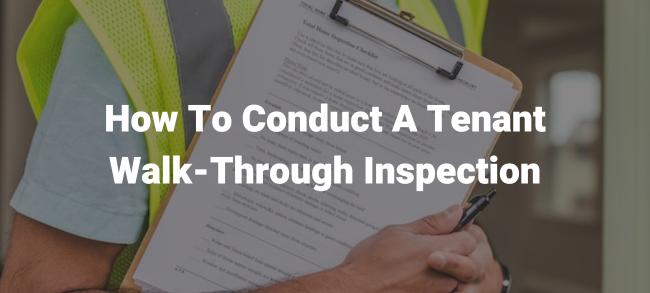How to File a Complaint Against a Property Management Company
Is your property manager giving you a hard time? Do you feel like your tenancy application was unfairly declined? Or would you like to know how to file a complaint against a property management company?
If so, you are in the right place.
Generally, property managers are often responsible for all matters related to the safety, health, suitability, and usability of rental units.
Therefore, whenever they fail to provide one or more of these essentials, tenants can file complaints against them.
Luckily, every state in the country has a number of ways in which renters can voice their complaints against property managers.
If you are a renter with issues about your rental unit, here are two things you can do to get the issues resolved.
1. Directly Contact the Property Management Company
So, have you tried directly reaching out to your property manager to air your complaints? If not, start with that. Try visiting their offices for a face-to-face meeting. Admittedly, most conflicts often arise from miscommunication.
Sometimes, sending an email or making a call to your management company doesn’t guarantee swift action.
Why?
In most cases, these companies often deal with a lot of tenants. Therefore, they can have a huge backlog of situations to tend to.
Understandably, if your complaint is new, it may be placed at the bottom of the queue. Therefore, not all delays translate to ignorance on the management company’s part. And that’s why paying them a visit can help you to understand what’s really going on and why they are taking so long.
If the delay is due to negligence or ignorance, then you should consider reporting the property management company.
2. File a Complaint Against the Property Management Company
If a face-to-face meeting doesn’t allow you to resolve your issues, the next step would be to file a formal complaint.
Formal complaints help to motivate landlords or property managers to resolve your problem or can be used to legally compel them to do so or face dire consequences.
All you need to do is to contact the relevant authorities with enough evidence to prove your case.
Now, different authorities often handle different issues. Therefore, you have to know where to file your complaint. Like most states, Florida offers renters a number of ways to file a complaint including:
- Filing a complaint with The Department of Housing and Urban Development (HUD)
- Filing a lawsuit in court
- Lodging a complaint with the Better Business Bureau (BBB)
- Filing a complaint with the city’s relevant department
So, what’s the best way to go about this?
First, collect every bit of proof you have to present a solid case.
Thereafter, submit the complaint to the relevant authorities and wait for a response or direction on how to proceed.
3. File a Complaint with the HUD
If you are a homeowner or have been renting a house for a while, you’ve probably heard about HUD. This is the department that oversees everything and anything concerning housing and property rental activities.
Therefore, they are probably your best bet at getting your issues resolved when your property manager seems reluctant to respond to your complaints.
Once you file a report with them, the department will investigate your issue.
And if it is serious, HUD will fine or even bar the property management company from doing business again; it’s that serious!
HUD handles complaints ranging from:
- Poor management
- Fraud
- Poor maintenance
- Health hazards
- Safety issues
- Withheld security deposits
- Discrimination and so on
Basically, if you have any housing or tenancy-related issue that you feel your landlord or property manager isn’t taking seriously, HUD is the place to go to.
However, from all the issues mentioned above, discrimination is treated in a serious manner.
According to the Fair Housing Act, current or potential renters should not be discriminated against; based on their race, color, disability, religion, gender, sexual orientation, nationality, or familial status.
Therefore, if you feel like you were unfairly dismissed by a property management company (violating the fair housing law), report the matter to HUD.
You’ll be assigned a specialist to go over your problem. If it is within their jurisdiction, they’ll help you out. If not, they’ll refer you to someone who can (in most cases, your local housing department).
However, to know more about your local HUD field office, check out their website to find contact information and even FAQs related to your problem.
Moreover, the website also shows where their offices are in Tampa, Florida or any other part of the state.
4. File a Lawsuit Against the Property Management Company
If for some reason, filing a complaint with HUD isn’t an option, you can opt to take the company to court. Before you do that, you have to find a reputable tenant-landlord attorney to walk you through your options.
Due to their in-depth knowledge of local/state tenant-landlord and housing laws, an attorney can be very valuable to you.
They’ll help you understand what you can and cannot sue your property manager for. And once they do, you’ll know whether or not filing a lawsuit is a good idea.
5. File a Complaint with the Better Business Bureau (BBB)
Like all businesses, a property management company values its BBB ratings and reviews.
Obviously, lower ratings make it hard for them to earn the trust and confidence of potential clients. And this is never good for any business.
That’s why businesses often go to great lengths to ensure that their BBB rating is high and impressive.
Therefore, filing your complaint with the Better Business Bureau can put a lot of pressure on your property management company to respond and resolve your problems.
6. File a complaint with the City’s Department Related to Your Issue/s
The city of Tampa, FL has many departments, each covering and executing a specific mandate.
Some of these departments are, in one way or another, tied to housing and tenancy. They include:
- Human Rights – Deals with local/state/federal anti-discrimination laws in employment, housing, and public accommodations.
- Construction Services Division – In case your problem involves structural faults in your rental unit. Basically, this department is responsible for all construction permits and inspection needs.
- Planning and Development – In charge of the safety, affordability, and compliance of housing and commercial structures.
Now, reporting your issues to any one of these departments can be helpful. That’s because they can compel your property management company to deal with your problems.
Property managers know that failure to comply with such directives put them at risk of losing their licenses and certifications. Therefore, they’ll work fast to resolve your issues.
Evidently, there are so many channels you can use to resolve issues with your property manager. All you have to do is to ensure that your complaint is valid and that you’ve given them enough opportunities to fix the issue.
Advantage Realty Services Inc












